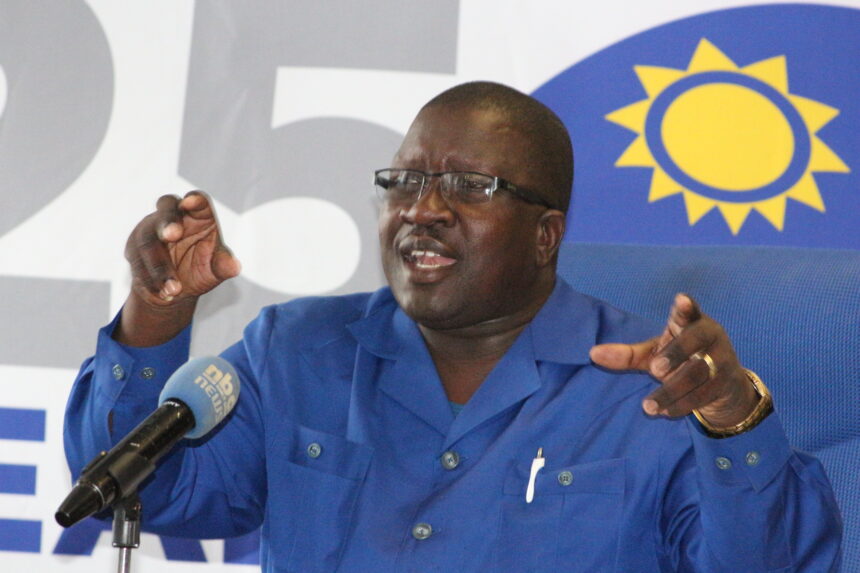EPUKIRO – Erstwhile information executive director Mbeuta Ua-Ndjarakana has shared his memories of Founding President Sam Nujoma, whom he remembers as a leader who demanded efficient service delivery.
Ua-Ndjarakana, a descendant of Namibians who fled to Botswana after the 1904 genocide, first heard the name Sam Nujoma from his uncle, Daniel Munamava.
Munamava frequently travelled to Namibia with Ovambanderu chief Munjuku Nguvauva II, who raised funds for then-Ovaherero paramount chief Hosea Kutako’s fight against colonialism.
“This is where I heard about Nujoma, and from a lot of senior people in Botswana, who were collaborating with my uncle and collecting money to send to Kutako,” Ua-Ndjarakana recalled.
He later met Nujoma in Zambia and Angola during Namibia’s liberation struggle. In early 1989, Ua-Ndjarakana joined the Swapo campaign material design team in Lusaka.
He was then recalled from his teaching position in Opuwo to lead Swapo mobilisation in the Otjozondjupa region, later becoming its first governor. He served as executive director for 26 years.
The late Nujoma, he said, wanted effective and efficient service delivery to be given to people when needed.
“He would stop you immediately when he noticed that you are not telling the truth about tasks given to you. He wanted to hear the truth, and didn’t want delays,” he added.
“He was the face of Namibia, and Namibia had an opportunity to chair the UN General Assembly. That is due to his extraordinary leadership,” said Ua-Ndjarakana.
He further noted Nujoma’s commitment to delivering services to all Namibians, including roads construction, water access in remote areas, and the revitalisation of traditional authorities.
He highlighted the Founding Father’s role in the repatriation of Botswana returnees, and the establishment of settlements at Gam and Eiseb.
Nujoma will be laid to rest at Heroes’ Acre on 1 March 2025.
-Nampa


